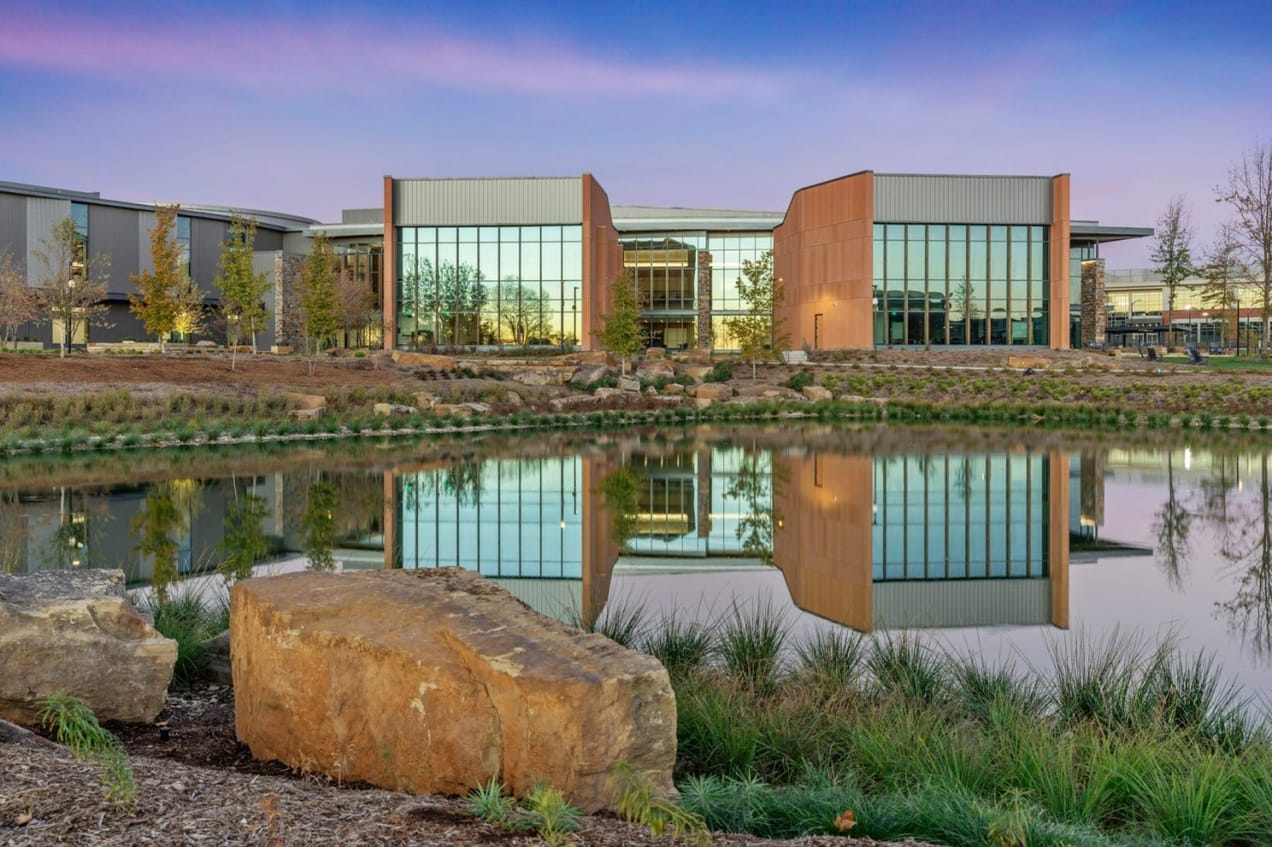
Is this what transition risk looks like?
We often read about transition risk and stranded assets, but what does this really mean, and how does it get reflected in the financial statements and value of companies? The short answer is - much more slowly than you may think.
“The market can stay irrational longer than you can stay solvent.” John Maynard Keynes
Summary: We often read about transition risk and stranded assets, but what does this really mean, and how does it get reflected in the financial statements and value of companies? The short answer is - often much more slowly than you may think. And Thames Water illustrates this rather neatly.
Why this is important: Transition risk and the threat of stranded assets are often talked about as reasons why investors should 'avoid' certain assets or companies. But, if the impact on profits and share prices is slow, their effectiveness as a sustainability finance tool is much reduced.
The big theme: We know we need to mobilise vast amounts of private sector finance if the sustainability transitions are going to happen. One apparent lever is the risk that the transitions will lead to stranded assets, potentially leading to financial loss.

The details
Summary of a story published in The FT:
The FT reported last week that shares in the French food retailer Casino fell as much as 37% after the company announced that they were planning to undertake a debt for equity swap. The plan is to convert up to E1.5bn of secured debt into equity, a move that would massively dilute shareholders. This comes on top of the E3.6bn of unsecured debt the company had already announced would be swapped for equity. As a result of the restructuring the previous parent company Rallye would no longer control Casino. The rating agency Moody's downgraded Casino debt in May last year, citing "weak liquidity and an unsustainable capital structure".
Why this is important
Even if the risk of stranded assets is real, it can take some time, often many years, before the financial markets properly price it in. And even then it can take an external shock to make it real.
You might be wondering what the financial position of a food retailer such as Casino has to do with sustainable investing. The link is simple. One argument as to why investors should avoid companies that are highly (negatively) exposed to the sustainability transitions is the risk of stranded assets. These are 'expected' to fall in value over time, meaning that they become less valuable, hence creating a decline in the share price (or value of the debt secured against them). The best known example is the fossil fuel industry.
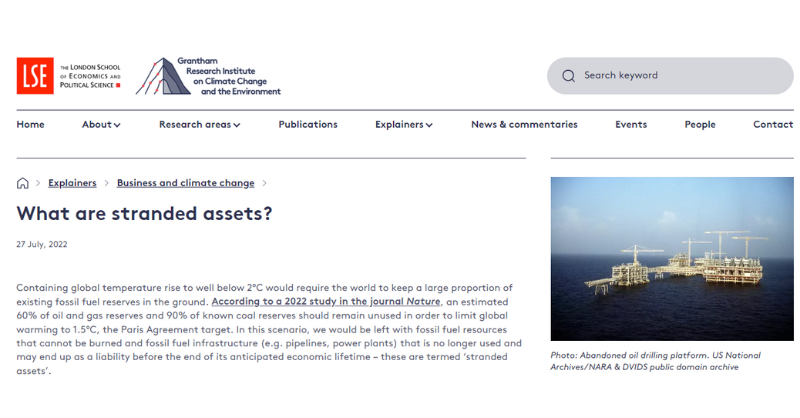
The risk is that the potential for stranded assets might not be fully reflected in the value of companies that extract, distribute or rely heavily on fossil fuels. If this risk were priced in, a sudden drop in value could result, presenting a risk to investors and shareholders.
To be clear - this analysis does not just apply to the fossil fuel industry. Many other sectors could be negatively impacted, including construction/real estate and industry.
The application to sustainable investing
So, what has this to do with Casino (or Thames Water or even RWE). While the risk of fossil fuel type assets becoming stranded is a future event, and hence subject to uncertainty (from a financial impact perspective) we do have similar examples that have already happened, situations that we can learn from.
In the case of Casino, the high level of debt and the liquidity issues have been known for some time. The rational expectation was that at some point, these risks would become so serious that the companies claim on the assets (the supermarkets) would be reduced. And that this would lead to a fall in company value and hence a collapse in the share price. The most likely mechanism was always that the claim of the debt investors would be greater than that of the shareholders. Meaning the shareholders would lose.
So far, so good. If you believe in the efficient market hypothesis (widely taught in business schools), this is known information. So the market should have priced it in already. And yet, when it became obvious what was going to happen, the share price fell massively. How can this be 'right'.
One lesson I learnt in my years as an investor (sometimes the hard way) is that even knowledge that seems to be known does not get 'priced in'. I have not yet found any research that properly explains this, but my working explanation is that investors get fooled by a form of recency bias.
What is this? To quote Morningstar:
In this case investors know that the risk exists, but note that the company has survived this risk for years. So, they start to believe that it will survive into the future. Until of course, something happens that makes this belief untenable. In the case of Casino the debt for equity swap.
What does this mean for sustainability transition risk?
For many investors sustainability transition risk, and the challenge of potentially stranded assets is viewed similarly. They know that it will probably happen, but they comfort themselves with the notion that 'nothing has happened yet, and it may not happen for a long time, and so in the meantime, the companies make a good investment (at least financially)'.
We had a very recent example of this approach (potentially) going very wrong when multiple news agencies shared the story that Thames Water, the UK's largest water utility, could be on the verge of being placed in Special Administration.
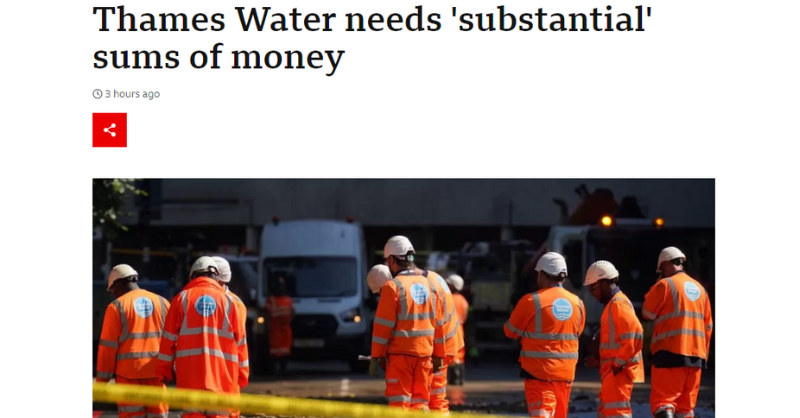
Last week we posted on LinkedIn on the Thames Water situation, and how investors should see this as a warning of the potential scale of sustainability transition risk. This is what we said then ...
Investing in a water company should tick lots of ESG and UN SDG boxes. And this one (Thames Water) appeared to have a relatively diverse board as well. But, if the financial business model doesn't align with the ESG model, then we have a potentially poor investment.
This is what sustainability transition risk looks like in the real world. It's not a gradual financial change that we can adapt to, it's sudden and dramatic. Over my decades in the finance industry I have analysed vast numbers of companies. In some cases I have come away with the view that something was wrong with the business model. And then watched the company happily keep going, often for years. And then something changed.
Why did the financial market not see this coming?
In the case of Thames Water the high level of debt, poor free cashflow and the apparent inability to reduce water leaks and halt the pouring of raw sewerage into waterways, probably raised warning flags. But the business model seemed to be surviving, it carried on for years like that. Until apparently it didn't. Until a combination of external shocks tipped it toward the edge.
Yes, rising interest rates and how the debt was structured did not help. But I suggest that one of the big 'external' shocks was Environmental. Increasing public objections to the industries poor environmental record put pressure on politicians, and regulators. This meant the industry was facing a requirement to invest more, a lot more. But, if you already have a lot of debt, where does this extra capital come from ?
We don't yet know how this story ends. The company may be able to raise more equity, and find ways of funding it's next five year capex programme. But, regardless of how this particular case ends, the lesson is clear.
What conclusions can we draw from this?
Sustainability transition risk is very real. And it can hit suddenly and hard. You might think that if Thames Water had been a publicly listed company, the stock market investors would have seen this coming. And maybe the company would have had more incentive to restructure sooner. But, I wouldn't rely on this.
The best way to avoid the red flags is to look at both sustainability and finance. ESG on it's own is not a good investment tool. We need to 'bridge the gap', finding ways of making sustainability and impact financeable.
The non believers - stranded assets will not happen
Before we leave this topic, there are many investors who believe that the financial implications of the demise of fossil fuels will not impact company value, or if it does, the impact will be much less than many people think. And no, these are not climate change deniers. This is a topic we will return to in future blogs.
There is not a single view on this but the main strands are:
- The analysis that shows the stranded asset risk is based on what needs to happen to achieve net zero (or the 1.5 degree Paris Alignment) targets. But action to deliver this is going to be lacking, and so the expected decline in fossil fuel consumption will not happen.
- Yes, the decline in demand for fossil fuels will happen, but as with the German coal example, the government will financially compensate the companies, and so the financial loss will be much smaller than people think, or even not happen. We call this the RWE scenario.
- And the last group are those who 'believe' in legal process, specifically the energy charter treaty, which they (not unreasonably) think will protect them from financial loss.
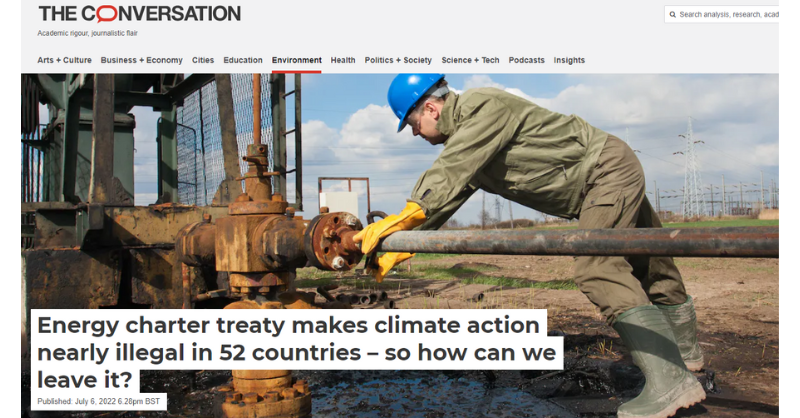
The energy charter treaty started as an EU agreement in 1991 which guaranteed legal safeguards for companies invested in energy projects such as offshore oil rigs. Under Article 10 (1) of the treaty, these investments must “enjoy the most constant protection and security”.
If government policies change in order to curtail these projects, such as Italy’s 2019 decision to ban drilling for oil and gas within 12 miles of its coast, the government is obliged to compensate the relevant company for its lost future earnings.
This is a topic we wrote on back in 2022 - and while things are slowly changing, the main issues remain.
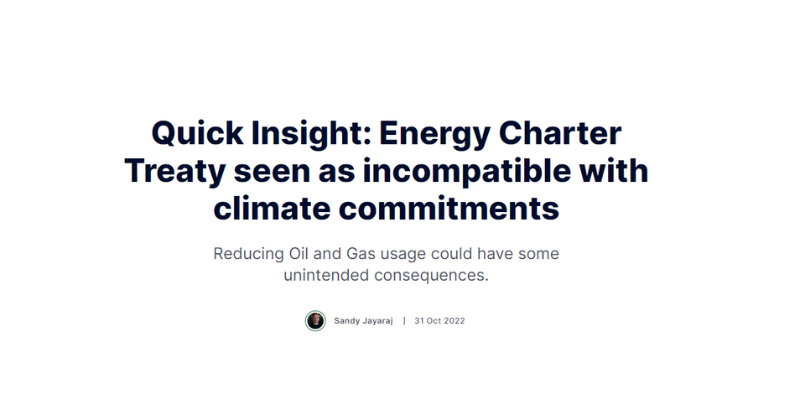
Conclusion
While we understand the logic of the analysis around stranded assets and sustainability transition risk, we believe that investors and sustainability professionals need to think deeply about how this risk gets translated into share prices. And what external event might trigger a change in how financial markets think.
Bridging the gap between sustainability analysis and financial markets is key to making real change happen.
Something a little more bespoke?
Get in touch if there is a particular topic you would like us to write on. Just for you.
Contact us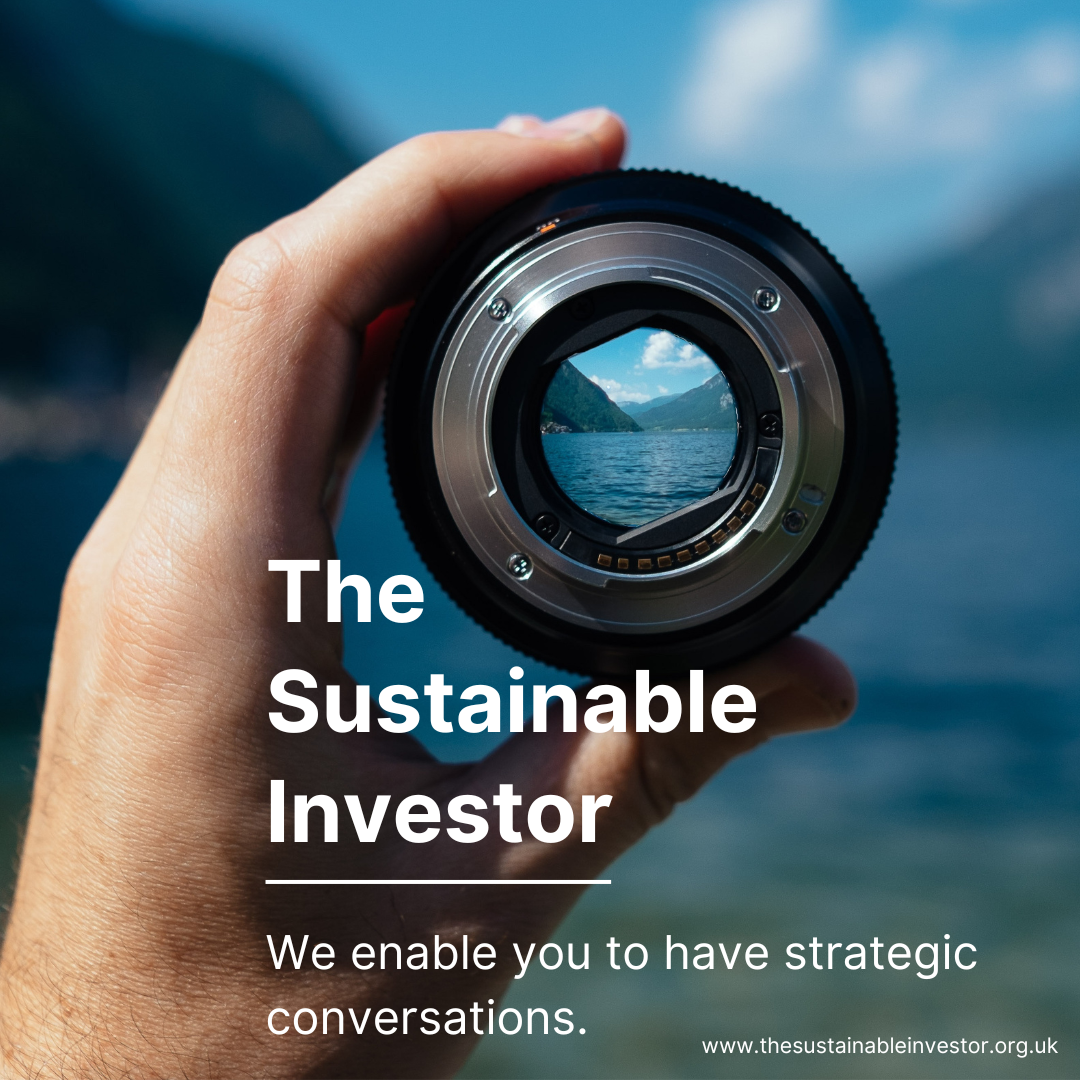
Please read: important legal stuff.

